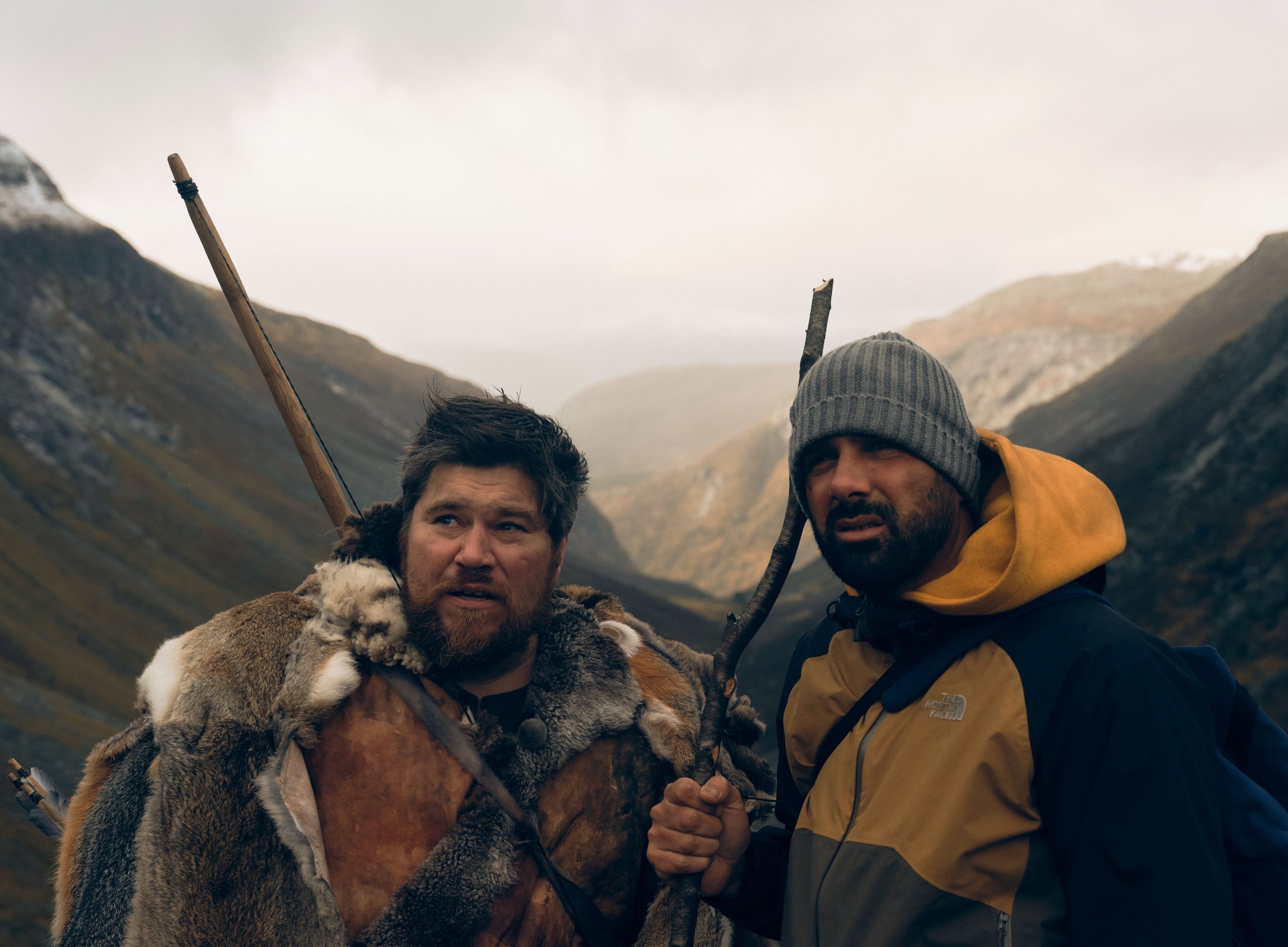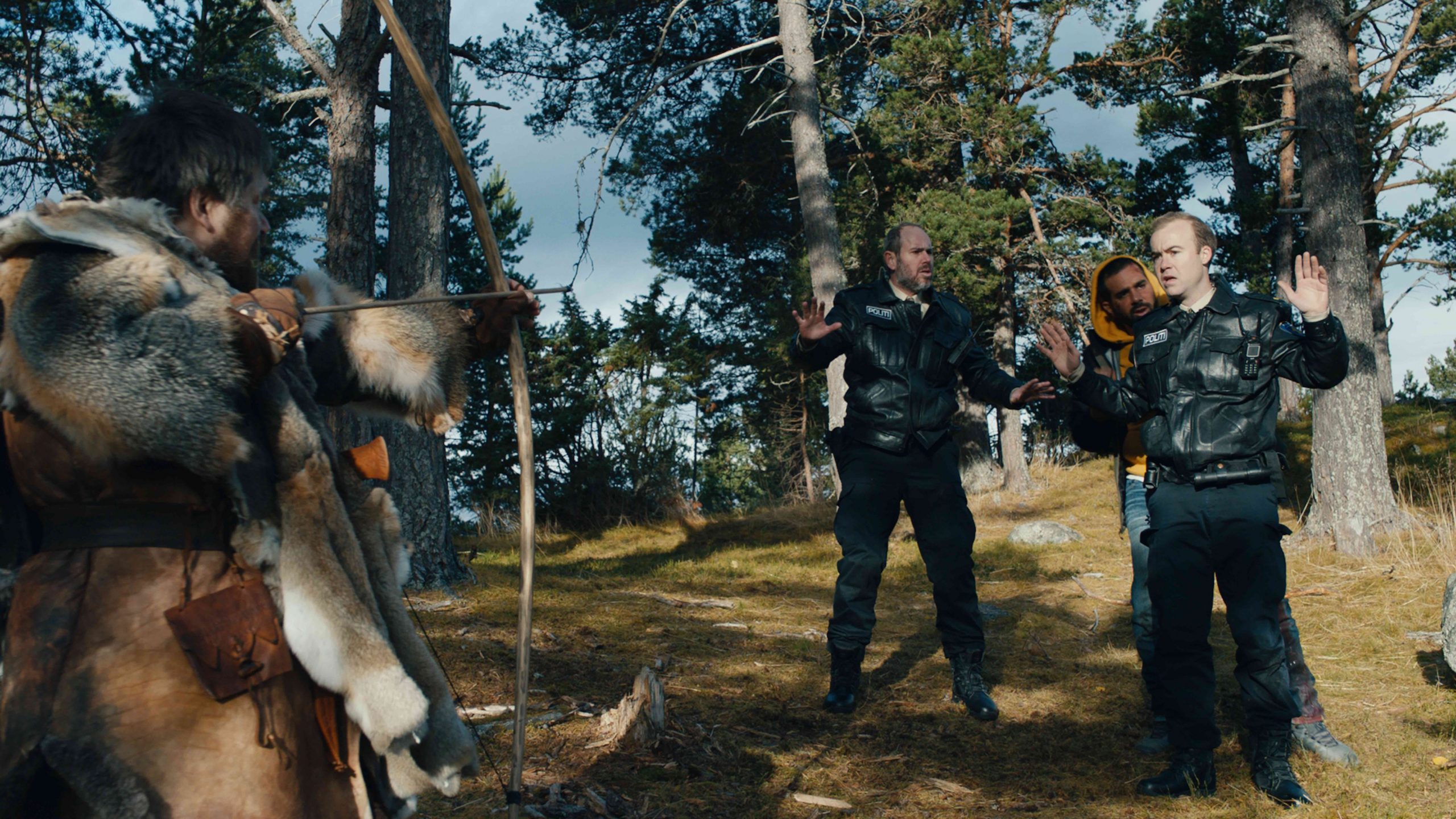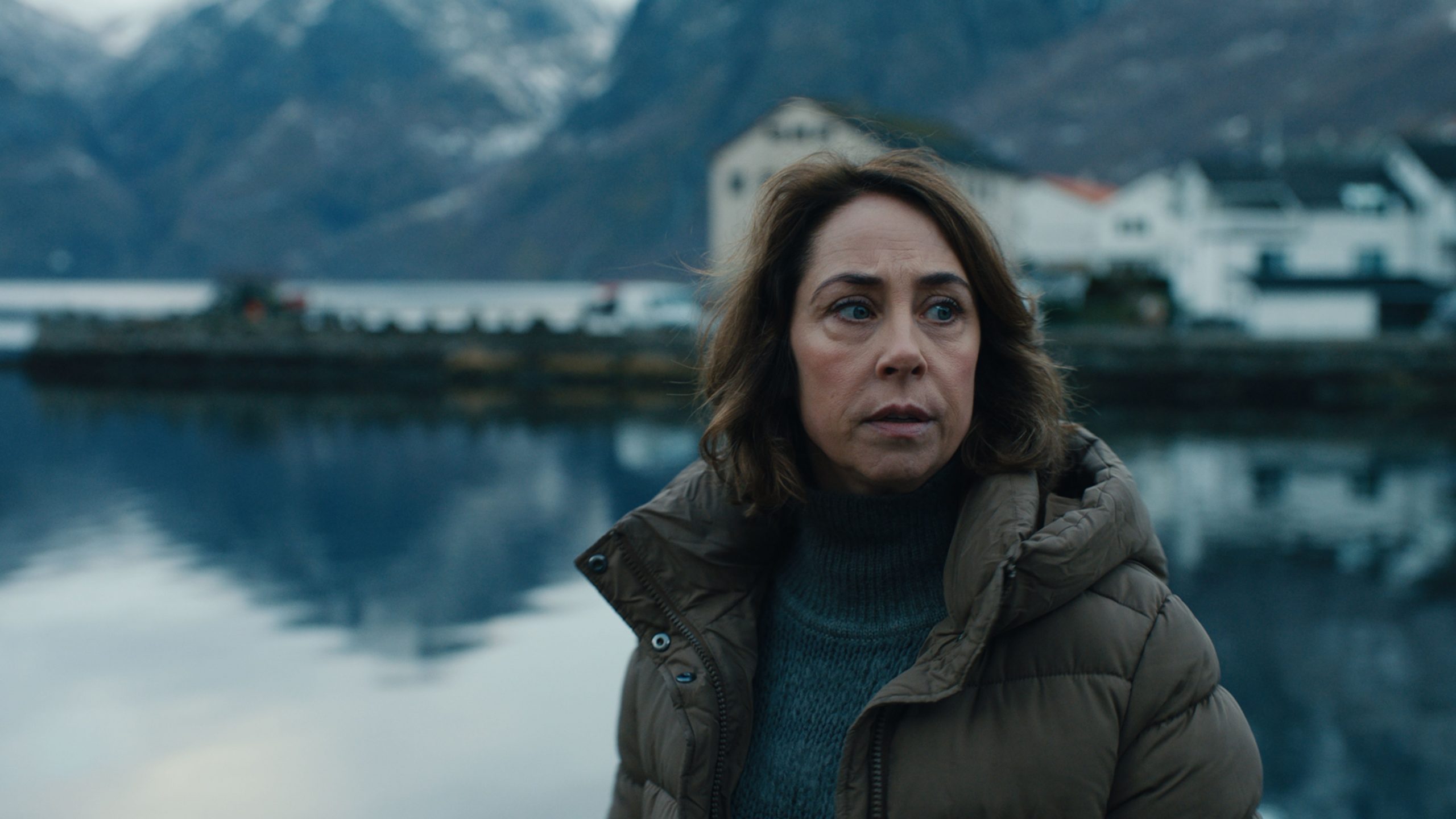
★★★☆☆
Thomas Daneskov’s Wild Men is weird; part-thriller, part-comedy, but it’s mostly a fascinating look into a man’s psyche.
Wild Men opens with a shot of the wilderness that pans to a man crying. And not silently, stoically weeping, but full-on ugly-crying. The kind of crying we’re all too ashamed to admit we’ve done either when Mufasa dies in The Lion King, or when a seal puppy is killed in a David Attenborough documentary. It’s cathartic weeping and we all love it, but somehow get uncomfortable seeing from others.
Anyway, this is the first sign of the themes director Thomas Daneskov sets out to explore in his film; the fragile male psyche, crumbling under societal pressures. Martin (Rasmus Bjerg) is your regular Danish guy with a family and a relatively boring job. Except Martin has escaped to the Norwegian wilderness to live off of the land. He encounters Musa (Zaki Youssef) an injured man, carrying a sports bag and the two set off finding a Viking village they both can live in peacefully and authentically.
It’s hard to categorise Daneskov’s film. It’s funny, but uncomfortable and there is much bubbling underneath the surface. Maybe being uncomfortable is part of the point, a necessary step into normalising talking about male mental health. Ultimately, Wild Men is about men and their issues, the inescapable pressure they feel and how it can build up and what it even means to be a man.

It’s hilarious stuff; Martin’s trip to the local supermarket after failing to kill his dinner is comedy gold, but the film fails to find something to focus on. As the film goes on, the focus is pulled from Martin to Musa and the contents of his bag. Who’s story is this? It’s never really answered and it grows frustrating.
With the lack of focus, comes a lack of emotional entanglement from the audience. We’re just not that compelled by the end result. Daneskov and co-writer Morten Pape also offer very little background information on Martin’s decision to abandon everything and move to the woods.
We also follow Martin’s wife Anne (underused Sofie Gråbøl), as she tries to feverishly reach her husband, who has just disappeared without a trace 10 days ago. While Anne never comes across as the nagging wife, she isn’t being unfair or asking too much here, her perspective was needed more than that of an ageing police officer, Øyvind, who has just lost his wife.
To his credit, Daneskov handles the film’s multiple and frequent tonal shifts well. Most of the film’s subplots and scenes shouldn’t work together, but Wild Men has such a sweet quality of endearment, it’s hard not to fall for it. It’s a shame the film ultimately outstays its welcome by just a smidge.

It’s never quite as poignant as it should be about the more serious themes Daneskov wants to explore. The narrative sprawls and reaches, but never seems to fully, directly touch the subject of male mental health. It’s implied and carefully approached, but 2022 is not the year of sneaking around such a subject.
But Wild Men is full of empathy. Empathy for Martin, for Musa, for Øyvind and by extension, all men grappling with the pressures and issues that come with being a man. It’s applaudable, even if the film isn’t perfect. It’s a start and that’ll do.



